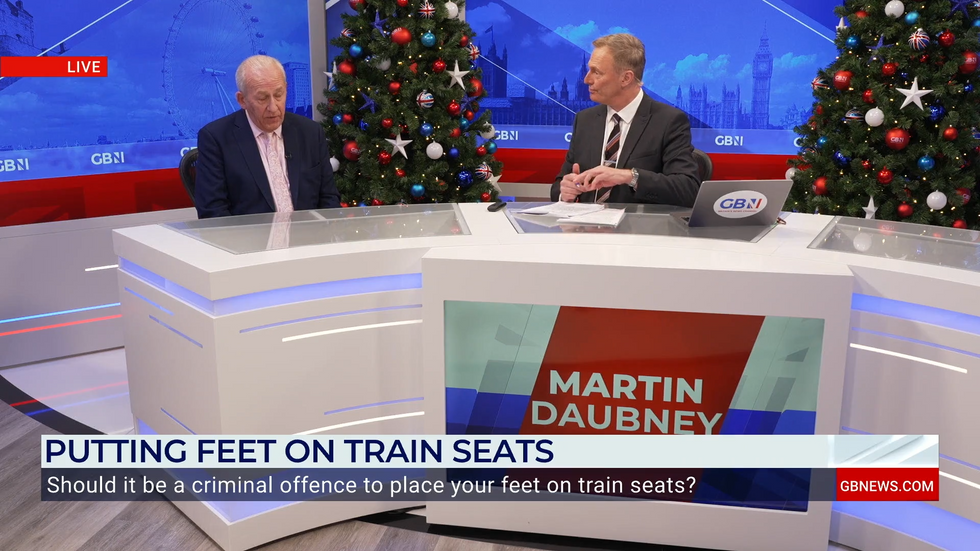Former Met Police detective Peter Bleksley has lambasted a common trait of modern life which he feels shows lays Britain’s “decline” bare.
He feels people resting their feet on train seats is not acceptable conduct on public transport, and he has sparked lively debate on the matter online.
By posting an image to X of a sitting commuter placing who had placed their legs on the seat opposite, Bleksley drew huge engagement.
“I believe, and I still firmly do believe, that good manners, common courtesy and consideration for your fellow human being is the bedrock of a modern, civilised society”, he said.

Peter Bleksley’s post went viral
GB NEWS / X
“I’m always giving up my seat on trains, I see others doing it. Sometimes I hold doors open for people, whether they like it or not.
“I use ‘please’ and ‘thank you’ like I draw breath, to be honest with you. Sadly, I see so much of this being eroded on a daily basis.
LATEST DEVELOPMENTS

Bleksley said manners are being eroded
GB NEWS
“I think it is part of the gradual decline of this once great nation. When I saw this young woman yesterday, disrespecting her fellow passengers, disrespecting the train she’s travelling on by putting her feet on the seat, I took a photograph and it has gone huge.
“There’s over 1.1 million views of it, last time I looked, and it has sparked huge debate.
“Much of which heartens me because so many people are in agreement that it’s discourteous and that it shouldn’t happen.
“Perhaps railway authorities ought to enforce their bylaws more than they do.”

Peter Bleksley joined Martin Daubney on GB News
GB NEWS
The rules around feet on train seats vary depending on the train operator’s specific by-laws and regulations.
Some operators, like Merseyrail, have strict policies in place that can result in fines of up to £50 for passengers who place their feet on seats.
More serious consequences may apply under broader legislation such as the Public Order Act or the Anti-Social Behaviour, Crime and Policing Act 2014.
Enforcement typically falls to train staff or British Transport Police, who may issue warnings before implementing penalties.